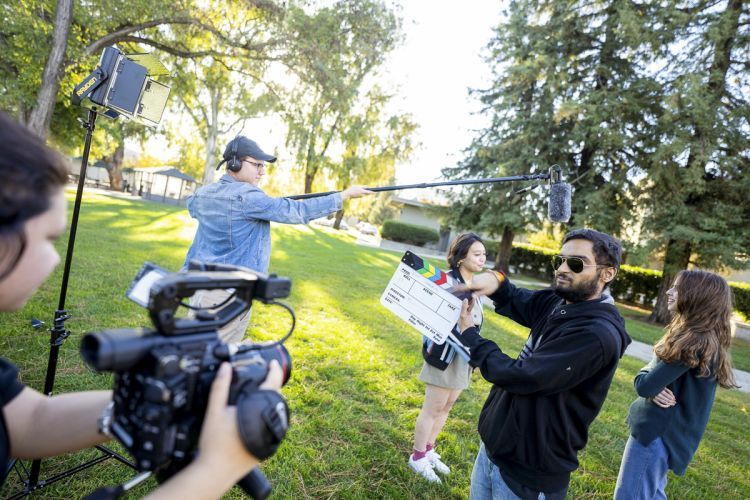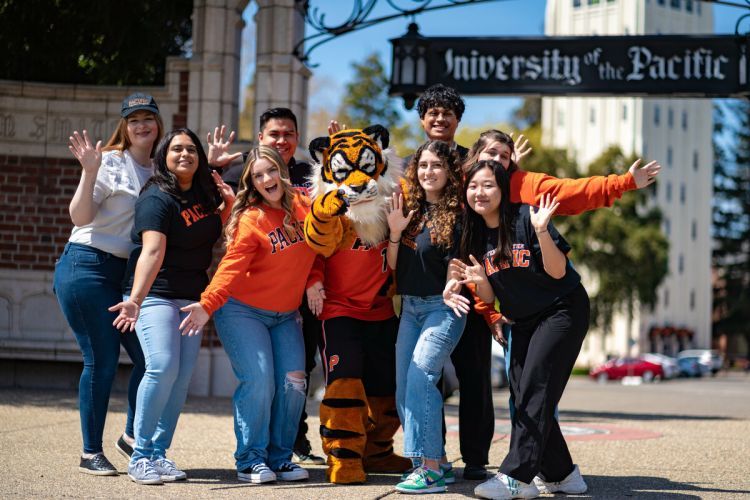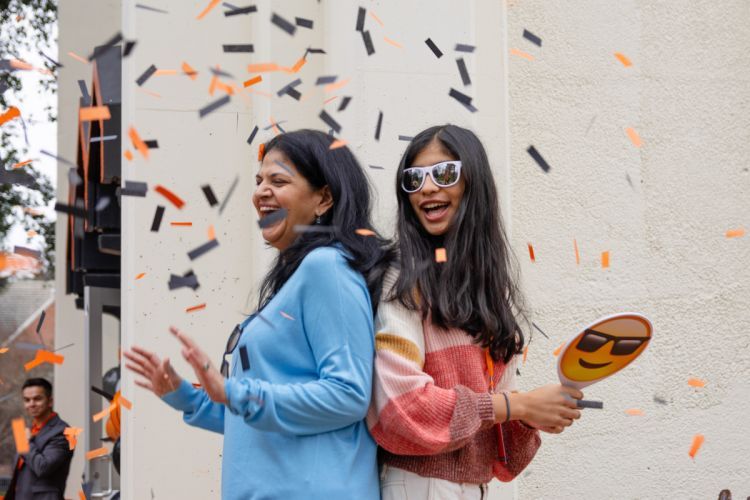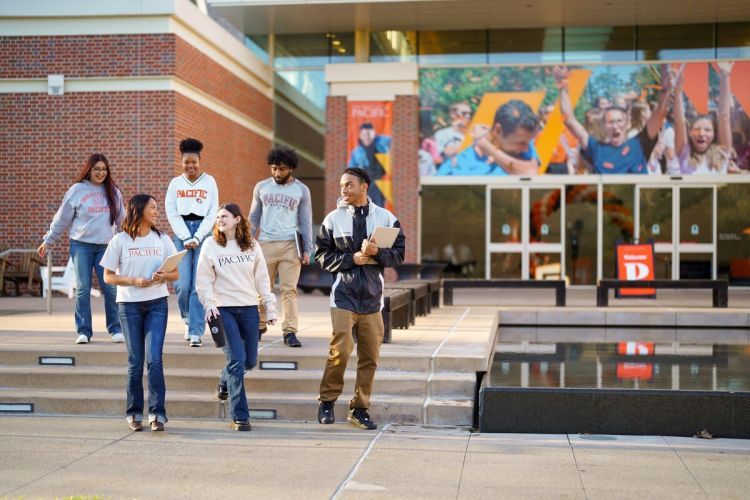Breadcrumb
Pacific prepares to welcome high school students for new summer institute

A filmmaking program is one of 13 options available to high school students in Pacific's summer institute.
University of the Pacific will give high school students the chance to experience college and explore engaging courses from cancer research to video game design as part of a two-week summer program.
The inaugural Pacific Summer High School Institute will run from June 19 through July 1 with students living and learning on the Stockton Campus, immersed in courses, social activities and fun events.
“Students will have close faculty-student working relationships that are the hallmark of our undergraduate programs,” said Edie Sparks, vice provost and director of the summer institute. “The programs will be kept small, no more than 20 students for each of the academic programs, so there's a lot of personalized attention.”
Registration is currently open for 13 programs: filmmaking, video game design, cancer research, esports, music sound and recording, drug development, sports analytics, stock investment, entrepreneurship, competitive debate, women’s leadership, coding and innovation. There is a $150 discount for students who register and pay in full by May 1.
“This is a remarkable opportunity for students who are still in high school to come to our historic campus and explore topics they’re passionate about with access to our expert faculty and state-of-the-art equipment in our labs and studios,” said President Christopher Callahan. “It will also give students an advantage in preparing for college with a better understanding of what they may want to study.”
The programs offer hands-on experiences. In the Curing Cancer camp, students will work alongside researchers in Pacific’s biochemistry lab, learning how to design and perform experiments.
“This program is very unique. It is a lab setup you won't find in a high school,” said Georgios Pantouris, assistant professor of chemistry and faculty lead for the program. “We’ll have students work in the cell culture room where we will have them culture cancer cells and then treat the cancer cells with known drugs.”
The courses will also show students how they can turn their passions into careers.
“If they're interested in competitive gaming, it’s a wide-open canvas to earn a good living in the competitive esports arena, not just as a player but as a content creator,” said Lewis Gale, interim dean of the Eberhardt School of Business, who is leading the esports program.
In the business school’s computer lab, which will be converted to a multi-player gaming lab, students will learn strategy, leadership and teamwork. These are “many of the characteristics that businesses find valuable and will serve them well throughout their lives,” Gale said.
The sports analytics program will introduce high schoolers to a rapidly growing field. The global sports analytics market will reach $3.4 billion by 2028 according to Research and Markets, an international research firm.
“We give students a broad overview of how analytics are used in the sports industry, not just in performance or coaching, but also in the business side of sports,” said Rebecca Achen, faculty lead for the program. “That means understanding how it’s used to improve fan engagement, make ticket pricing decisions and venue-related operational decisions.” Pacific is launching a sports analytics specialization in the fall of 2022.
The programs will be taught by Pacific faculty who excel in their fields. Steven Farias, who oversees Pacific’s renowned speech and debate team that recently won a national title, is heading up the summer institute’s competitive debate program.
The Creating Media camp is led by Media X instructor Gabriel Teo, who has 20 years of experience in major film and gaming studios. Students will be introduced to cinematography techniques and 3D motion graphics. Much of the filming will be done using phones.
“They’re more affordable than giant cameras and so easy to use,” said Teo. “Besides using cameras, students need to learn about cinema language, composing shots, how to export in the correct formats, and how to take different shots and put it all together to look like one piece of work.”
Students will use their new skills to create 30-second film titles by the end of the course.
Along with the robust programming, students will live in residence halls, dine together at the DeRosa University Center Marketplace and participate in a range of activities.
Prospective students can join weekly question and answer sessions to learn more about the summer institute Mondays from 6 – 7 p.m. through April 25. Register for one of the virtual sessions.





